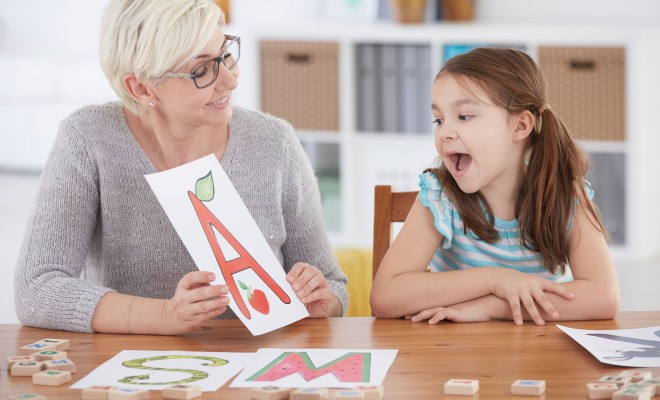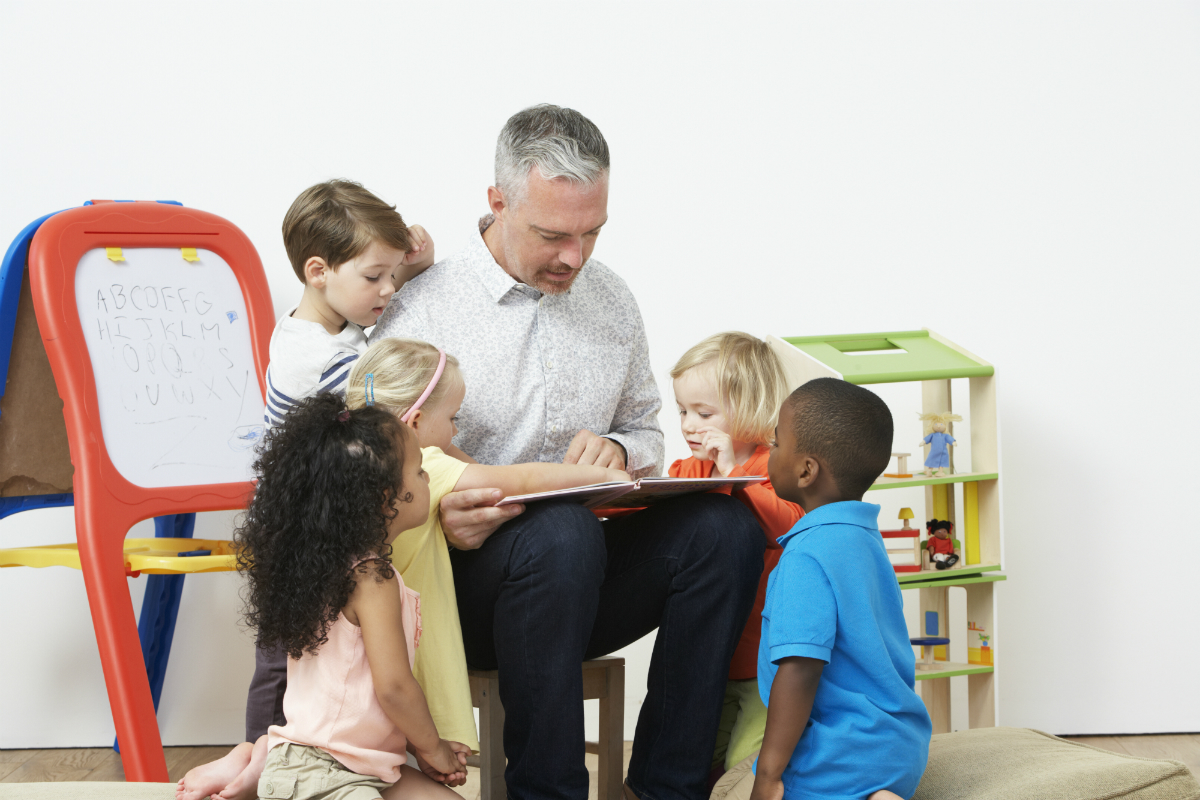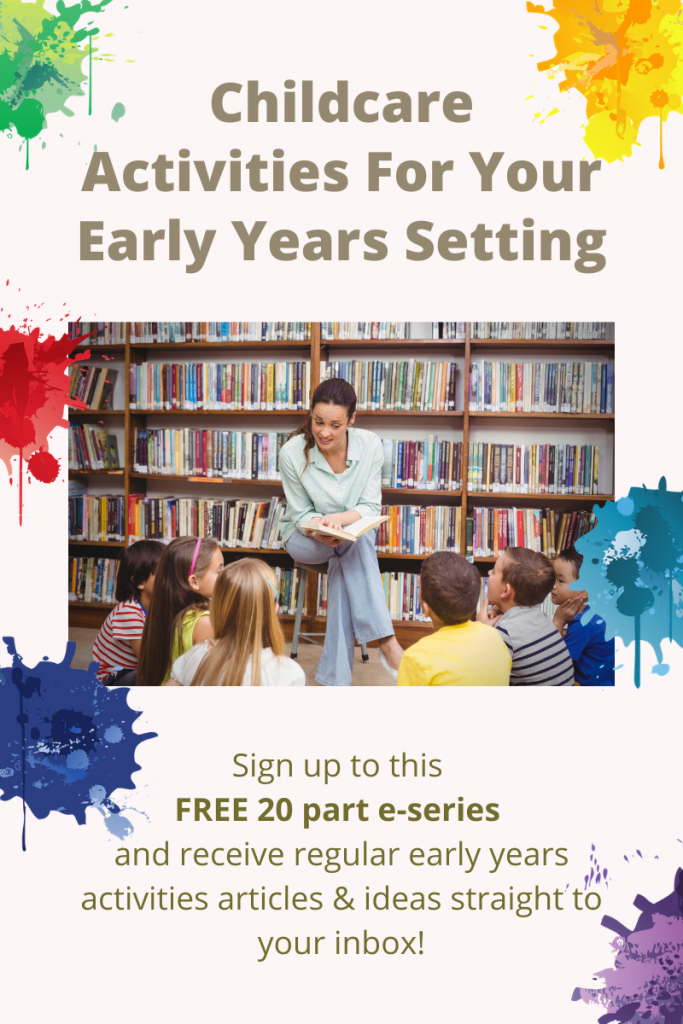
Childcare Activities
18 Early Years Literacy Games and Activities
18 Early Years Literacy Games and Activities
- Letter recognition games
- Making magnetic letters
- Assigning nouns
- Guess what happens next
- Act it out
- Story scramble
- Sensory books
- Guess the rhyme
- Story lucky dip
- Sing songs and nonsense rhymes
- Rhyming pairs
- Be descriptive
- Descriptive I-spy
- Beads on a string
- Tieing laces
- Pipe cleaner creatures
- Pattern art
- Pens, paints and paper
It’s never too early to start fostering literacy skills and support children in building strong foundations for when they start primary school. While teaching them how to read and write is not in your remit, you should be helping to prepare them so that they are ready to learn. There are many ways in which you can support them in developing a confident and enthusiastic approach to literacy.
Literacy is a key competency that enables us to make sense of – and make our way in – the world. There are several aspects to consider; as well as reading and writing, literacy also encompasses comprehension and communication skills.
Incorporating the development of literacy skills into daily nursery life isn’t hard; after all, communication is at the heart of everything we do. But there are lots of activities you can introduce (or tweak) to reinforce these skills even further. These can be divided into four areas:
Alphabet recognition
Being able to recognise all the different letters of the alphabet is a fundamental building block when it comes to learning how to read. Make sure you have plenty of resources available for the children to play with, for example letter stamps, letter cutters, magnetic letters, letter beads, letter foam mats, letter puzzles. There are so many ways in which you can support this – here are just a few ideas:
1. Letter recognition games
Play letter recognition games with the children, eg letter hunts, letter matching, letter sorting, letter bingo, letter of the day.
2. Making magnetic letters
Make your own set of magnetic letters with the children, using cutters and air-drying clay; paint them and stick magnets on the back.
3. Assigning nouns
Stick 26 sheets of paper (as large as you have room for) on the wall – one for each letter of the alphabet (you could cut them into the shape of the letters or just write the letters on). Let the children fill them in with stickers, collage pictures or drawings, representing things that begin with each letter.
Stories and narratives
Everyone knows how important it is to read with children, and every nursery should have a good stock of books for all ages. Simply reading to children has plenty of value in itself, but there are lots of ways that you can make story time more interactive and enhance the opportunity to develop their comprehension and communication skills:
4. Guess what happens next
Discuss the book while you’re reading it. Ask the children questions, for example ‘what do you think is going to happen next?’, or ‘how do you think she is feeling now?’
5. Act it out
Get the children to act out the story.
6. Story scramble
Photocopy pages from a well-known book and ask the children to put them in order, telling the story as they go.
7. Sensory books
Use flap books and touchy-feely books to encourage interaction.
8. Guess the rhyme
Read rhyming books and get the children to call out the words at the end of sentences.
9. Story lucky dip
Put together a story bag, either using pictures drawn/stuck onto pieces of card, or small toys/objects from around the nursery. Get the children to pull them out one by one and use them as narrative props to make up their own stories.
Sign Up to Receive this 20-Part Activity Email Series
Exploring words
Have fun exploring words, playing with rhymes, and helping to build the children’s vocabulary. Here are some ideas:
10. Sing songs and nonsense rhymes
Sing songs and nursery rhymes together; make up little nonsense rhymes with the children (eg ‘the fat cat sat on the mat’).
11. Rhyming pairs
Make a matching rhymes game, by writing pairs of rhyming words on pieces of card, along with pictures (either drawn or cut out of magazines). This can be played either as a memory game (cards face down) or as a simple pairing game (cards face up).
12. Be descriptive
Remember to always describe what you’re doing, or what you’re looking at, and explain new words to children if they don’t understand. Get the children to describe things as well.
13. Descriptive I-spy
Play I-spy with colours or shapes, for example ‘I spy, with my little eye, something coloured blue’ or ‘something square’.
Developing fine motor skills for writing
In order for children to learn to write, they need to be able to hold and control a pencil or pen. For this they need to practise their fine motor skills (the movements made by using small muscles in your hands and forearms), and there are plenty of ways that you can help them:
14. Beads on a string
Encourage them to play with beads, either threading them onto string or sorting them using tweezers.
15. Tieing laces
Invest in a set of lacing cards, or make your own from paper plates.
16. Pipe cleaner creatures
Get the children to make creatures using pipe cleaners.
17. Pattern art
Make some artwork together by gluing different kinds of dried beans onto card to create a pattern.
18. Pens, paints and paper
Always ensure that the children have plenty of resources and opportunities to draw, scribble and paint.






You must be logged in to post a comment Login